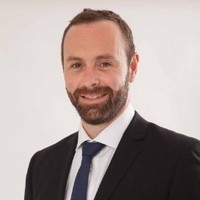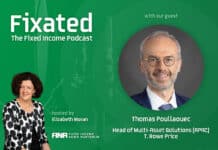
Steven Spearing and Joe Unwin, portfolio managers from Apostle Fund Managers provide an overview of the fund manager, their view of the bond markets, and a new ethical high yield credit fund coming to the market next month.
1. How are you viewing the bond markets at the moment and how are managers reacting?
We believe that the unprecedented sell-off across global bond markets this year has now made bonds look attractive. While most of the price action has been driven by the move higher in rates, credit spreads have also widened significantly in line with a broader risk sell-off. This means that bonds are now better compensating investors for both the rising interest rates and heightened macroeconomic risk.
We are of the view that the market has now overpriced interest rate hikes in Australia. When compared to the US, Australia’s core inflation is now at 3.7% while wages growth is at around 2.4%. However, in the US, core inflation is currently at 6.2% and wages are increasing at around 5% – both well above what we are experiencing here. Domestically interest rate hikes are also expected to have a stronger impact on house prices and will have the effect of limiting the RBA’s ability to raise interest rates to the levels implied by the market, which makes adding duration into portfolios interesting again. In contrast, the US is battling what is likely to be more persistent inflation and the Fed has been clear on its intention to embark on an aggressive rate hike cycle. We remain more cautious of longer-dated bonds in the US and prefer floating rate exposure that will improve returns with rising interest rates, at least until the inflation picture is clearer.

The main risks we anticipate from here in corporate bonds and loans is a widening in credit spreads and rising default rates. Given the economic backdrop, we like senior loans in the US high yield market because they offer floating rate exposure and sit on top of the capital structure, offering a better level of capital protection. We also prefer historically defensive sectors such as infrastructure credit. Private credit markets are also very attractive, particularly in floating rate ‘hard assets’ supported by megatrend tailwinds over the longer term.
2. You’re about to launch an ethical high yield fund. Can you please tell us about it and some of its key features?
Apostle will be launching its new Ethical High Yield Credit Fund in July and we are very excited about this product. Through our close relationships with niche US fixed income managers, Apostle has constructed a unique to market fund that aims to give investors access to alternative US high yield credit by combining institutional-grade managers and products with a strong responsible investment overlay.
Also read: Commodities And Inflation Near The Top Of The Cycle
The fund has a total return objective of 5-7% net of fees over a rolling 5-year period with a focus on achieving lower volatility than the broader US high yield market and on preserving our investor’s capital. The fund will be fully hedged back to AUD and all investments in the fund will be ethically screened to exclude companies with direct revenue from things such as fossil fuel production, weapons and armaments production, gambling, and nuclear power. We also assess companies for material involvement in things such as unethical corporate governance and deforestation.

While we believe that the fund is very well positioned for the current economic environment, it is a truly ‘all-weather’ fund. At launch we currently expect the portfolio to be approximately 65% floating rate through its investments in US senior loans and private credit which positions it very well for the rising interest rate environment. The strategy also focuses on historically defensive sectors – it will have a high weighting to ‘hard asset’ essential infrastructure debt that has historically proven to provide much better downside protection than the broader high yield market, as well as green and sustainable bonds. Our private credit allocation will give investors exposure to investments secured by US multi-family housing, medical office, retirement living, and student accommodation. We believe that the sectors we are focused on stand to benefit from long-term megatrends such as an aging population, climate change and the clean energy transition.
3. How do you see the recent change in our Federal Government impacting on investors’ risk factors regarding constructing a portfolio factoring in climate change?
Decarbonisation became a key focus point of this year’s federal election, clearly showing that Australians are looking for stronger action on climate change. Labor has set more ambitious targets in this regard, including reducing Australia’s greenhouse gas emissions by 43% by 2030. It has planned several initiatives to achieve this, including supporting industries to decarbonise, and investment into new and existing energy transmission infrastructure.
Investment into the clean energy transition will require funding from Australian corporates, the federal government and state governments. We expect this to lead to an increase in climate-focused fixed income securities in Australia which should ultimately be beneficial for climate-conscious investors. Increased issuance will help to improve the size and liquidity of the Australian market and it will provide investors with a broader range of investment opportunities across a wider range of industries, allowing them to better diversify their fixed income portfolios.
We have seen growing client demand for investment opportunities that give them access to companies that will benefit from demographic tailwinds, and to avoid high carbon emitters who will be challenged as the economy shifts to low carbon. Supporting companies who are likely to benefit from this transition makes good investment sense.
4. Can you please tell us about Apostle Funds Management, its history, philosophy and focus?
Apostle Funds Management (AFM) is an independent, boutique fund manager focused on the future of investing. Founded in 2008 by Managing Director Karyn West, AFM has over $5 Billion AUD under management from March 2022.
AFM partners with best-of-breed international and domestic asset managers to meet a genuine client need, offering specialist capabilities in the areas of credit, global equities, multi-asset, private equity, real estate, and impact investments. AFM has developed affiliations with managers including Dundas Global investors, Kayne Anderson Capital Advisers, Artesian, Post Advisory Group and Molpus Woodlands Group.
AFM’s guiding principle is believing that positive real-world outcomes can be achieved without sacrificing financial returns.




























